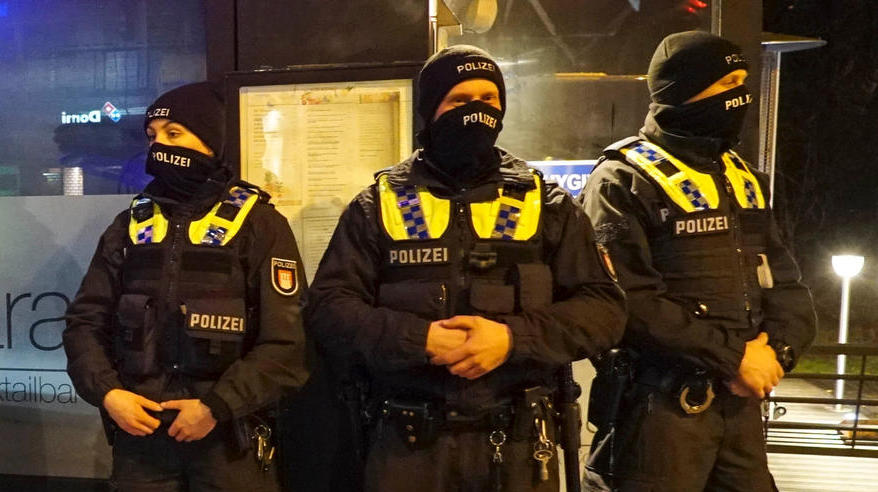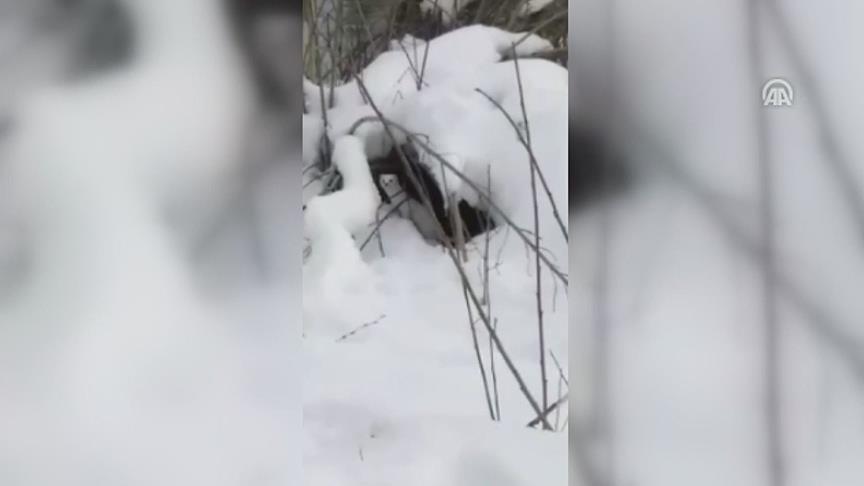“Huge profits” / There is a threat of a black market of hundreds of millions of euros

The federal government actually wants to avoid losing tax revenue. But a new regulation in the shisha industry could ensure that a huge black market is created. Customs is alarmed.
Sven Pracht seems dejected, he sighs exhaustedly into the telephone receiver. The entrepreneur may soon have to close his factory forever, and 30 employees are threatened with unemployment. At least that’s how Pracht sees it, the state is to blame.
Pracht is the managing director of Socab, one of the largest manufacturers of shisha tobacco in the world, based in Bad Krozingen in the Black Forest. Until recently, Socab was on a growth course. The largest shisha tobacco factory in Europe should have been built for around 60 million euros, and 200 people should have worked there.
In the meantime, however, the plans have been shelved, Pracht’s employees
fear for their jobs – all because of a new legal regulation that poses problems for the entire industry: the so-called 25-gram regulation.
Tobacco only in maximum 25 gram packs
From July 1st, shisha tobacco in Germany can only be sold in packs of a maximum of 25 grams. Older stocks in larger packs are only allowed to be offered by retailers until the end of the year.
And there is a lot of that. Because the slimy paste that has to be filled into the bowl of the water pipe to smoke it is currently available in all possible sizes: between 10 and 250 grams, everything is included. Still. Because the 25-gram rule would make that a thing of the past.
It was introduced by the Federal Ministry of Finance under the current Chancellor Olaf Scholz (SPD) as part of the “Seventh Ordinance to Amend Consumption Tax Ordinances”. Since publication in the Federal Law Gazette on August 20, 2021, the industry has feared for its future.
The main problem: The time for converting the packaging machines is far too short, the investment costs are very high. Entrepreneur Pracht also sees it this way: “We ordered a production line, more was not possible.” But even this device, which cost him around two million euros and is far from enough to pack enough tobacco, will not be delivered until November.
“We’re basically dead now”
So the time between July and November? “We don’t produce anything there, like we do now,” says Pracht. Since January, the tapes have been mostly still. “We currently live off our savings,” says Pracht. “We had big plans. And now? Nobody knows if we’ll survive the summer. Basically, we’re already dead when the regulation comes into force.”
But the economic problems in the industry are only a result of the 25-gram rule. The other is even bigger. Experts fear that a huge black market could soon arise – for larger packs imported from abroad.
Customs also sees an emerging black market
According to calculations by the Shisha Association, the Treasury could lose around 160 million euros in tax revenue this year alone – an immense sum that needs to be emphasized:
The association lobbies for the German hookah industry and thus also for Pracht, who is its deputy chairman. It is therefore hardly surprising that such horror figures come from the industry.
But even at customs you can see the problems that arise with the 25-gram rule. One person who is particularly familiar with financial crime there is Frank Buckenhofer, head of the GdP police union at customs.
Expert: “Huge profits on the black market”
“Tobacco products are extremely lucrative for criminals because you can make huge profits with them on the black market,” he said in an interview with t-online. “We’re talking about an illegal market estimated at several hundred million euros.”
And further: “The mandatory 25-gram packaging for water pipe tobacco now makes the legal product even more expensive and thus creates further incentives for criminal suppliers.”
There is a political consensus that smoking and vaping should become more expensive. In addition to raising the tax on conventional cigarettes and tobacco, Scholz’s ministry introduced a tax on hookah tobacco for the first time last year.
The lobby association estimates that this and the 25-gram rule should increase the cost of a kilo of shisha tobacco from an average of 85 euros to around 200 euros.
The reason for the regulation is thwarted
The curious thing about it: Combating tax evasion was the real reason for the 25-gram rule, as a ministry spokeswoman told t-online on request.
The aim was to “prevent the widespread practice of selling water pipe tobacco in portions as far as possible and to adapt the permitted pack size to the usual amount consumed per water pipe,” it said last year in the justification for the ministry’s decision.
In concrete terms, this means that the ministry wants to prevent shisha bars from filling the tobacco from bulk packaging and selling it to customers who only have to pay tax once.
However, shisha bowls are not standardized, so according to the Ministry of Finance there is no “usual consumption quantity”. The association also states that hookah bars only make up a quarter of the total market. Most consumption takes place in the living room at home.
In any case, the rule is impractical, since shisha tobacco is often mixed – a shisha bar could still open several packages and then give them to different customers. The corresponding tax revenues went to the state anyway.
Ministry of Finance sticks to decision
However, the Ministry of Finance does not see the criticism of the regulation, such as the very short lead time, which the industry criticizes. “The time required for conversion processes and the sale of old stocks in retail was adequately taken into account,” the ministry spokeswoman continued.
After all, the associations were already involved in May 2021 and had the opportunity to submit statements. And “a postponement of the effective date” would contradict the aim of combating tax evasion. We will therefore stick to the decision.
The BMF studiously ignores the fears of experts like Buckenhofer. Namely, that the 25-gram rule could achieve the opposite of what it was intended to do.
“The federal government is aware of the issue of the black market in the area of water pipe tobacco,” said the spokeswoman for the Ministry of Finance. “A significant increase is not expected.”
The black market will, “as in the past, be countered with targeted controls by customs and corresponding investigations by customs investigators,” it said.
Customs union leader Buckenhofer sees things differently and does not hold back with his criticism. “If the legislature intervenes in the market with regulations, it must also align the control and investigative authorities accordingly,” he says. “But that’s lacking.”
The responsible customs department lacks “the necessary staff, the necessary equipment and also the suitable administrative structures to effectively combat this very tolerable crime with the police”.
The fight against money launderers and smuggling lead a “shadowy existence and have so far been outside of any political radar,” said Buckenhofer. Customs must finally be set up in a modern way. “Then it will also help the legal market participants in the tobacco industry.”
And herself? Is desperate. A last resort: an open letter from the hookah association to Finance Minister Christian Lindner (FDP). The hope is that he will overturn the decision of his predecessor and current boss. He still had about two months to do it.


